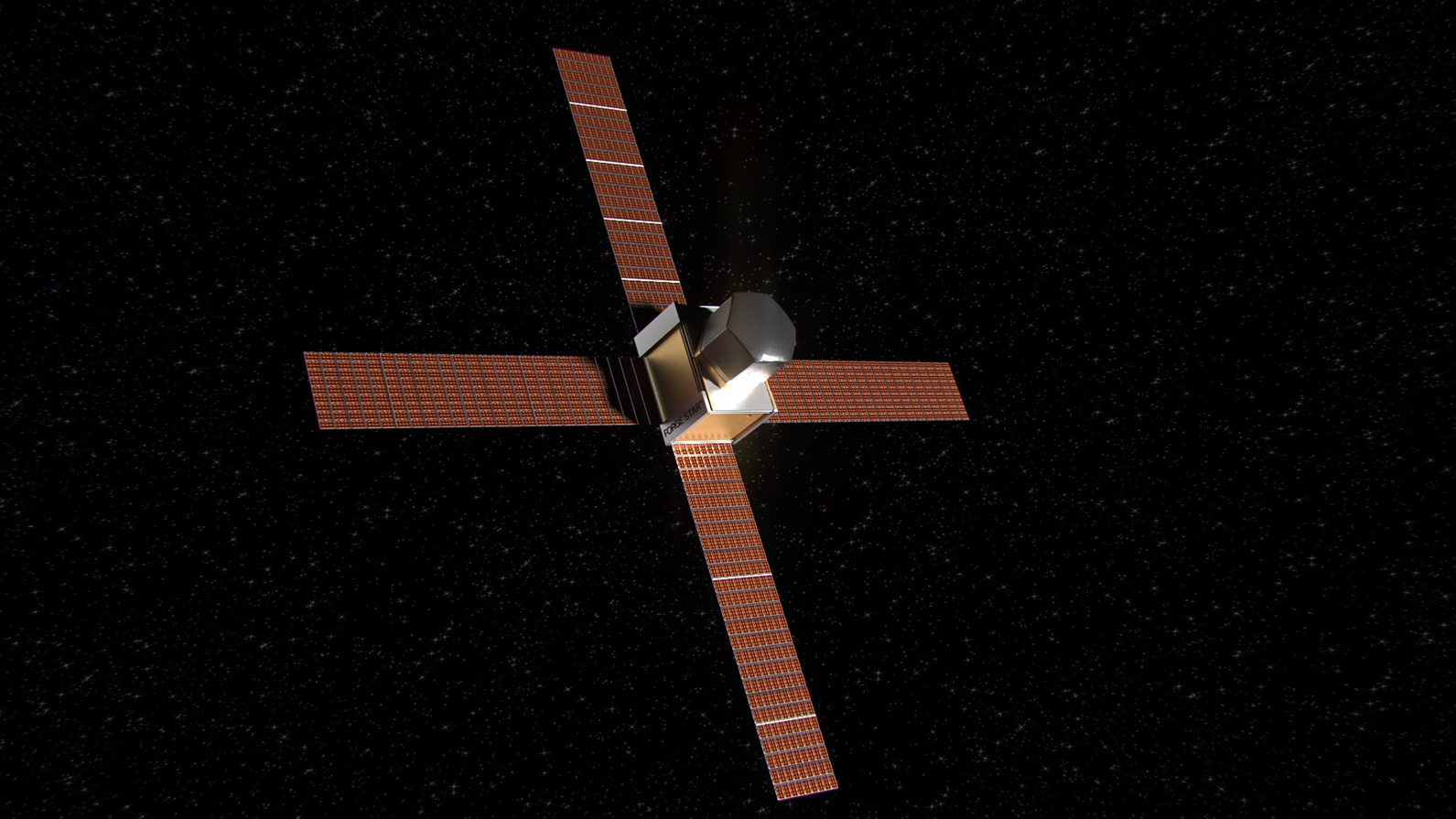Rocket Lab launches NanoAvionics satellite bus carrying NASA’s solar sail system

Image courtesy NASA
The satellite was launched onboard Electron 47 Light from a launch site in Mahia, New Zealand, opens on 24 April 2024 at 10:32 (NZT).
NASA’s technology demonstration aboard a NanoAvionics bus will test an 860 square foot (80 square meter) solar sail that uses light pressure acting on large reflective polymer sheets to provide propulsion for small satellites and test new deployable composite boom technologies for future space missions. The mission’s primary objective is to successfully demonstrate deployment of a new composite boom design. The booms are made from flexible polymer and carbon fibre materials that can be rolled and stowed very compactly, yet are stiffer and lighter than previous designs when fully deployed. The booms support and provide tension to four reflective polymer membrane 'sails'. When fully deployed, the team will perform a series of manoeuvres to measure the thrust performance of the solar sail.
The composite booms may also be used for building complex structures on the Moon or even Mars such as trusses for communications towers, surface shelters like hangars or very long antennas for rovers. Whereas the solar sail, if successful, could be the future low-thrust propulsion choice for cost-effective interplanetary science missions. Since solar sails require no propellant, they can essentially operate indefinitely and provide an alternative to conventional rocket propulsion for many long-duration missions.
The flight-proven 12U bus was assembled by NanoAvionics at its US facility while the integration of the payload was carried out at NASA’s Ames Research Center in California’s Silicon Valley, and NASA’s Langley Research Center in Hampton, Virginia. The 9U payload volume was necessary to host the 4.6 kg payload consisting of composite booms, polymer sails, the solar sail deployer mechanisms, deployment control electronics and onboard cameras to monitor the solar sail during and after deployment. During the entire demonstration phase, NanoAvionics engineers will provide NASA with operational support.
Žilvinas Kvedaravičius, CEO of NanoAvionics, said: “With the help of our satellite bus, this NASA mission is poised to advance the frontier of space exploration. Being entrusted with building the satellite bus for NASA’s state-of-the art mission is therefore a tremendous testimony to NanoAvionics technical capabilities, and to our quality and project assurance standards. The mission pushed the boundaries of our nanosatellite bus on several fronts and we carried those learnings onto our standard product line. As a result, we were able to improve both time to and time in space for other commercial, governmental, and research organisations.
Paul Frey, project manager on this mission at NanoAvionics, said: "Working with NASA to undertake the development of packing a solar sail into a 12U spacecraft presented both teams with numerous technical challenges. This mission is an important first step towards using solar propulsion for future deep space exploration."













